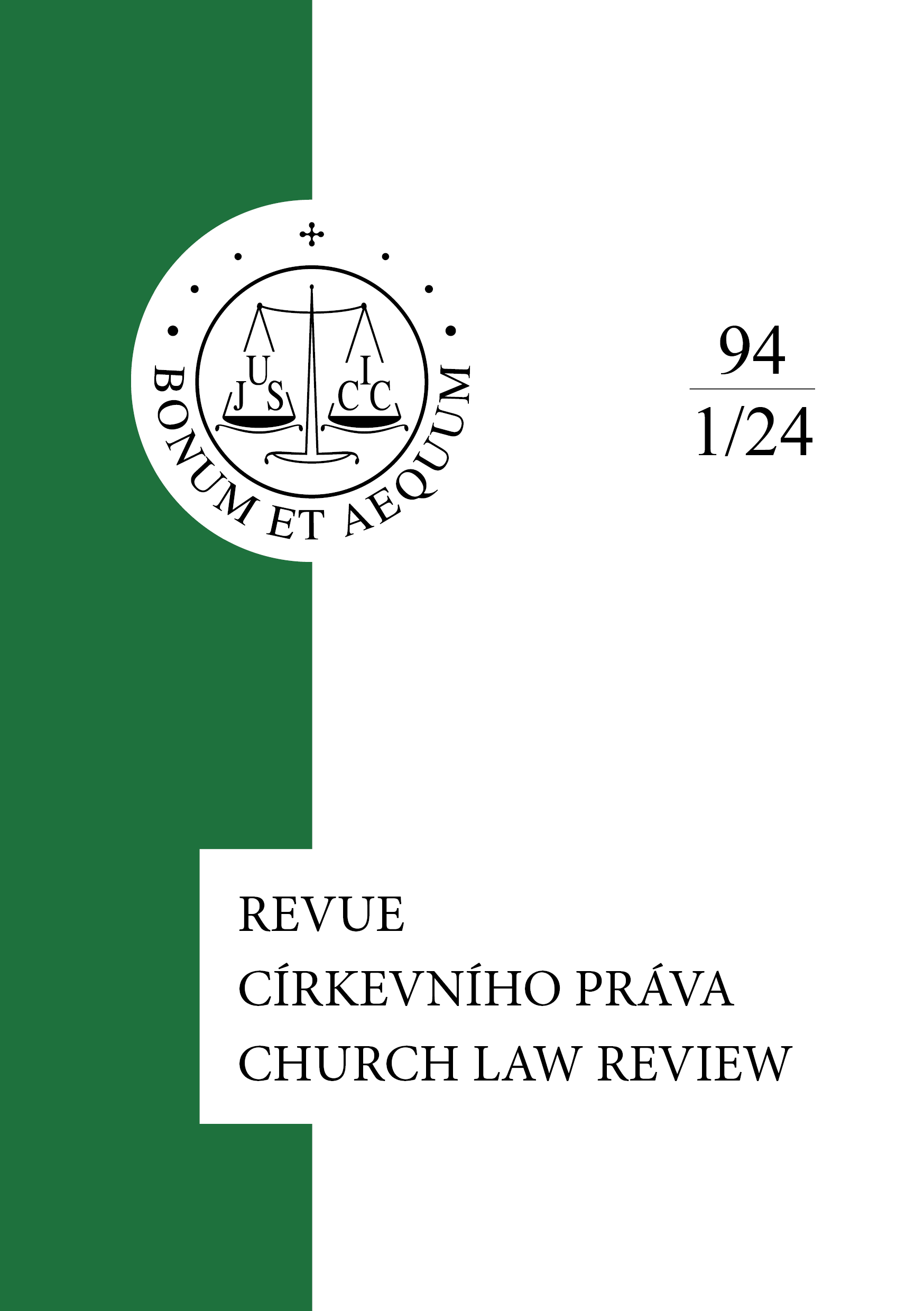Christian Thomasius (1655–1728) – stoupenec náboženské tolerance i absolutistického státu
Christian Thomasius (1655–1728) – A Supporter of Religious Tolerance and the Absolutist State
Author(s): Radim SeltenreichSubject(s): History of Law, Criminal Law, Ethics / Practical Philosophy, Political Philosophy, Modern Age, Early Modern Philosophy
Published by: Společnost pro církevní právo
Keywords: Christian Thomasius; natural law; the absolutist state; the Holy Roman Empire; the relationship between the state and the church;
Summary/Abstract: In his text the author examines Christian Thomasius (1655–1728), an important legal thinker of the early modern period in the Holy Roman Empire. He first of all gives the reader some basic information about his life, which is dominated by his time at the universities in Leipzig and, later, especially in Halle, which were the most important years of his academic career. In terms of its content, that is mostly connected with the theory of natural law and the absolutist state. The author points out, in particular, that unlike other theorists of this period, Thomasius emphasises more the historical conditionality of natural law. With Thomasius, as a defender of the model of the absolutist state, he then mentions the specific tasks of the state power that Thomasius defined, with the dominant role of the legislature, while acknowledging that it has the right to organise and administer the life of the churches, but not to interfere with the freedom of belief of the individual. Finally, Thomasius’ well-known opposition to witch trials is briefly recalled in the article.
Journal: Revue církevního práva
- Issue Year: XXX/2024
- Issue No: 94
- Page Range: 9-20
- Page Count: 12
- Language: Czech

